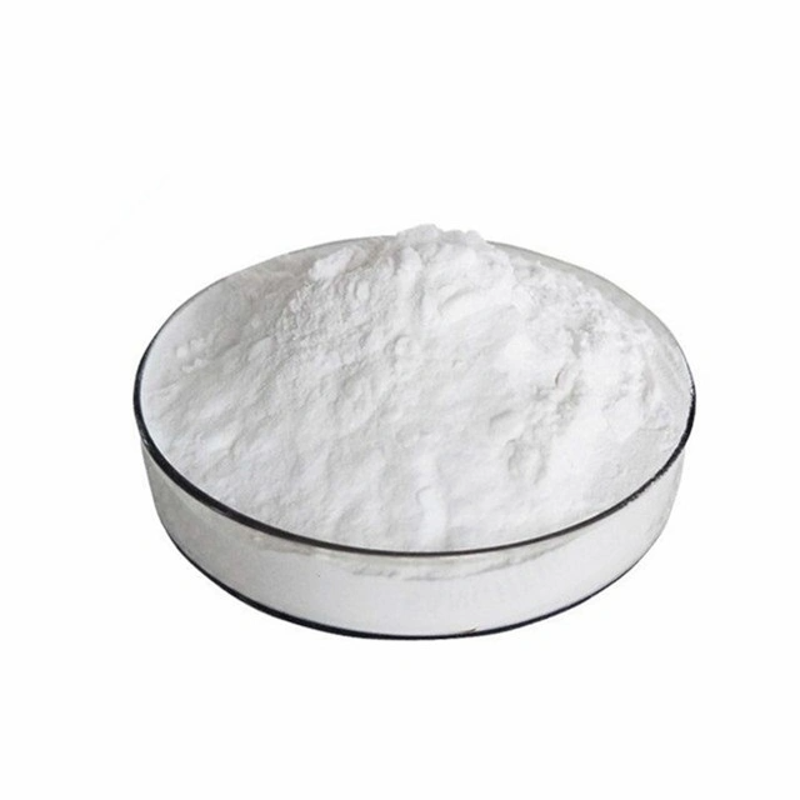Serum TP is closely related to inflammatory response and poor prognosis in patients with severe TBI
-
Last Update: 2020-06-27
-
Source: Internet
-
Author: User
Search more information of high quality chemicals, good prices and reliable suppliers, visit
www.echemi.com
Using serum TP concentration to predict patients with ALI, ATC, PHI, PTCI, 6 months death or 6 months prognosis, serum TP is the independent predictor of the above prognostic variables, its prognosis prediction ability is similar to GCS score, and the prognostic ability of GCS score is significantly improved- Excerpted from the article chapter: Lou LF, et alClin Chim Acta2019 Jan; 488:25-30doi: 10.1016/j.cca.2018.035Epub 2018 Oct 30."brain trauma (TBI) can affect the quality of life of patients, with high rates of disability and mortalityTBI triggers a variety of cytokine-mediated local and even systemic inflammatory reactions, including tumor necrosis factor (TNF-a), leukomyle-mediated 6 (IL-6) and c-reactive protein (CRP)Transpostor protein (TP) 18kda, originally thought to be peripheral benzodiazepine receptors, is now found throughout the body and brainPhysiologically, the concentration of TP in the brain is very low and is limited to glial cellsThe expression of TP is consistent with the activation of small glial cells and may be a biomarker that reflects brain damage and nerve inflammation, and is closely related to brain damage and neuroinflammation caused by TBILi-Feng Luo of Neurosurgery at CHC International Hospital in Cixi, Zhejiang Province, and others studied the correlation between serum TP concentration and TBI severity and prognosis, published in the January 2019 issue of Clinica Chimica Actathe authors analyzed 106 GCS scored 8, severe non-penetrating TBI patients between January 2014 and January 2017The inclusion criteria are: non-cranial brain simple injury scale score 3, 72 hours after trauma head CT scan scan s2 times, the first week of the post-traumatic stage of the skull CT scan scan s2 timesExcluding age of 18 years, post-traumatic stress or hospital time of 6h, a history of infection or head trauma in the last month, a medium neurological disorder with ischemic or hemorrhagic stroke, patients who use antiplatelet or anticoagulants, and patients with other systemic diseases such as uremia, cirrhosis, malignancy, chronic heart or lung disease, diabetes, or hypertension106 healthy people were selected as the control group TBI prognostic variables, including acute lung injury (ALI), acute traumatic clotting disease (ATC), progressive intracranial hemorrhagic lesions (PHI) and post-traumatic brain infarction (PTCI), 6 months of death, and 6 months of poor prognosis (i.e GOS score is 1-3) The degree of inflammatory response was expressed in tNF-a, serum IL-6 and CRP concentrations TBI patients, 65 were male and 41 female, with a median age of 35 years (4-4 difference 24-52 years old); In 49 cases (46.2%) patients had no light reaction in their pupils Radiology tests showed 47 cases (44.3%) of brain pool abnormalities, 42 cases (39.6%) mid-line shift of 5mm, 61 cases (57.6%) of traumatic cobweb subcavity bleeding, 66 cases (62.3%) Marshall CT rating 5 or 6 The patient was admitted to hospital after a head injury of 0.5-6.0h at a median interval of 2.0h, and 1.0-7.0h after the injury was collected with intravenous blood at a median interval of 3.3h The first CT scan was performed after 1.5-7.5h with a median interval of 2.8h Laboratory testresults showed that the median CRP concentration was 16.6 mg/l (the quardifference was 3.5-33.8mg/l); the il-6 median concentration was 9.4pg/ml (the quad difference was 5.3-12.3pg/ml) and the median TNF-a concentration was 8.6pg/ml (the quadratio was 5.9-13.6pg/ml) TP concentration distribution in TBI patients from 0 to 5.29 ng/ml, median 1.32 ng/ml (quart difference of 0.39-2.34 ng/ml) No serum TP concentration (0.127 ng/ml) was detected in the control group as 0 The serum TP concentration in TBI patients was significantly higher than that of the control group (P 0.001), and the serum TP concentration was strongly independently correlated with GCS score, serum IL-6, TNF-a and CRP concentrations 6 months after injury, 34 cases (32.1%) occurred with ALI, 42 cases (39.6%) ATC, 31 cases (29.2%) PHI and 18 cases (17.0%) PTCI 52 cases (49.1%) had poor prognosis and 30 (28.3%) died Serum TP concentration was significantly correlated with ALI, ATC, PHI, PTCI, 6 month mortality and 6 months adverse prognosis; it can be seen that serum TP concentration can predict the occurrence of ALI, ATC, PHI, PTCI, 6 months death or 6 months of poor prognosis patients, serum TP is the independent predictor of the above prognostic variables, its prognosis prediction ability is similar to GCS score, and significantly improve the prognostic ability of GCS score concluding that serum TP is closely related to inflammatory response, disease progression and prognosis in patients with severe TBI, and can be used as a biomarker to determine the degree and prognosis of brain damage.
This article is an English version of an article which is originally in the Chinese language on echemi.com and is provided for information purposes only.
This website makes no representation or warranty of any kind, either expressed or implied, as to the accuracy, completeness ownership or reliability of
the article or any translations thereof. If you have any concerns or complaints relating to the article, please send an email, providing a detailed
description of the concern or complaint, to
service@echemi.com. A staff member will contact you within 5 working days. Once verified, infringing content
will be removed immediately.







